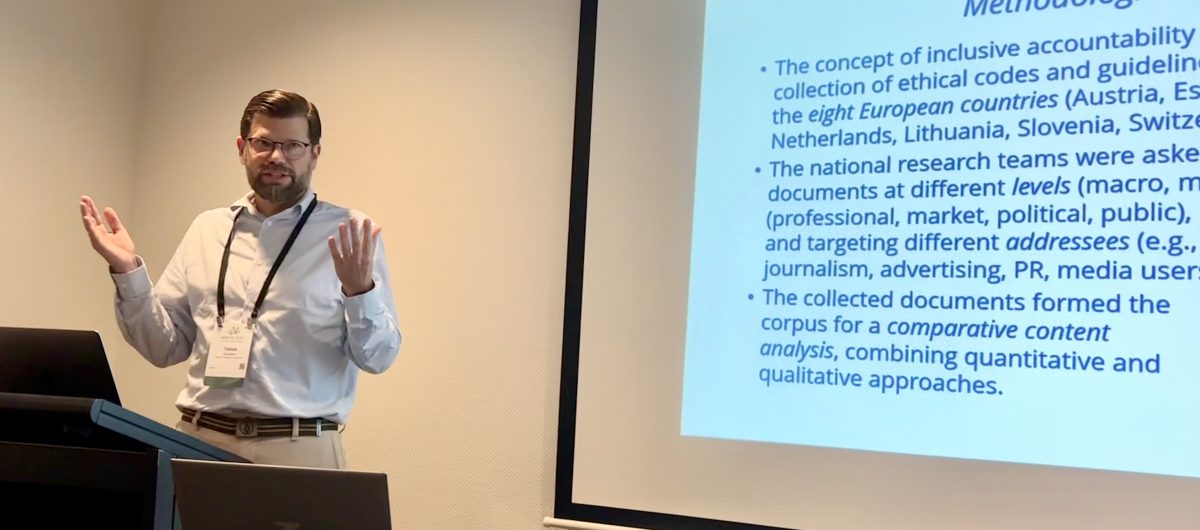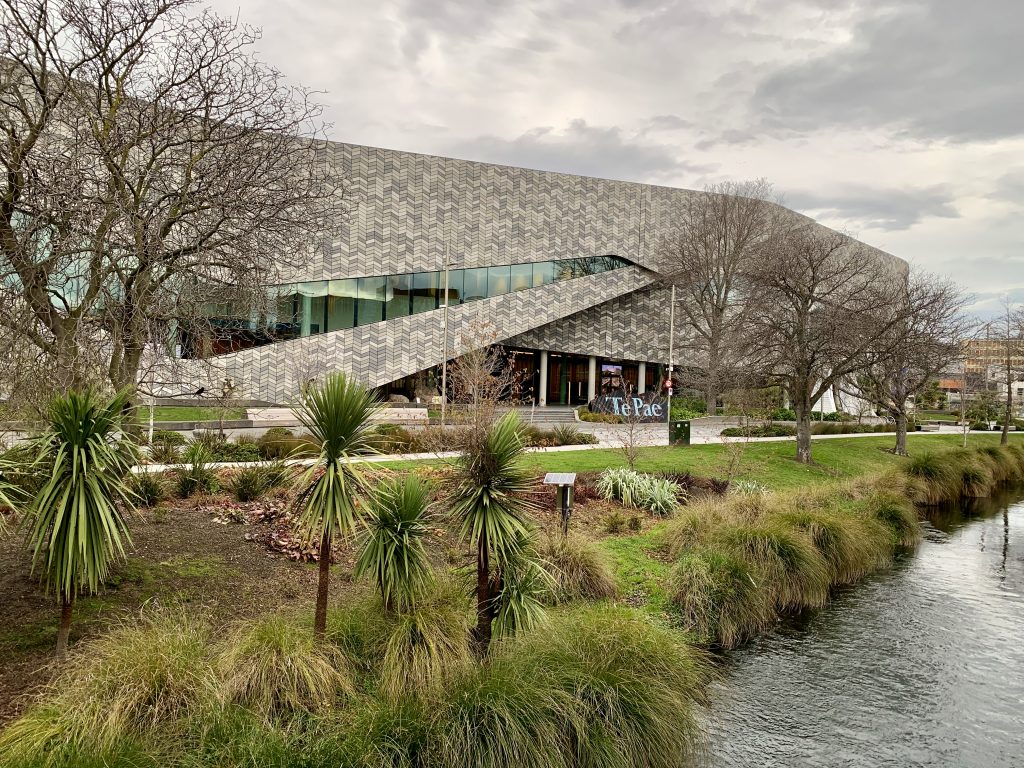
DIACOMET research finds global audience at IAMCR 2024

More than 1.300 researchers from all around the world gathered in Christchurch (New Zealand) this week to present and discuss the latest advances in media and communication research at the annual conference of the IAMCR (International Association for Media and Communication Research).

One of them was Dr. Tobias Eberwein, head of the DIACOMET research team at the Austrian Academy of Sciences. In his talk, Tobias summarised key findings of DIACOMET’s recent research activities within Work Package 2, based on a paper co-authored with a multinational team of 10 project members. The previously unpublished research results found an eager audience in the IAMCR “Ethics of Society & Ethics of Communication” Working Group and triggered lively follow-up discussions.
The paper showcased DIACOMET’s research in the context of Task 2.1 – a collection of codes of ethics and guidelines for public communication, which will soon be published in a searchable online database. In the work completed during the first project year, DIACOMET was able to identify a total of 435 documents in all participating countries, which formed the corpus for a comparative content analysis, combining quantitative and qualitative analytical approaches.
The evaluation shows that the professional and market-related frames of media accountability are clearly dominant in the analysed sample, whereas the public frame remains marginal in most of the countries studied. A majority of relevant codes is journalism-focused or targeted at public institutions; documents that are tailored to the particular needs of media users remain an exception. However, the study also makes it possible to identify a few good-practice cases from different countries that put aspects related to dialogic communication ethics at the centre. The paper uses these cases as a starting point for a reflection about principles of an inclusive ethics of dialogic communication that will not only enhance the academic discourse about communication and media ethics in the digital age, but also offer valuable suggestions for various communicative practices in democratic societies.
The full bibliographical details of the paper:
Tobias Eberwein, Laura Amigo, Sophie Duvekot, Kristina Juraite, Jernej Kaluza, Epp Lauk, Mari-Liisa Parder, Marie Rathmann, Krisztina Rozgonyi & Elina Tolonen (3.7.2024). The values we share: Towards an inclusive ethics of dialogic communication. Annual conference of the International Association for Media and Communication Research (IAMCR), Christchurch, New Zealand.
Further details can be found in the extended abstract of the presentation:
Photos: Elvira García de Torres, Tobias Eberwein
